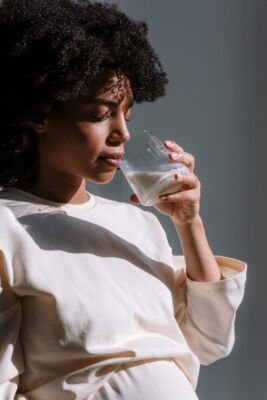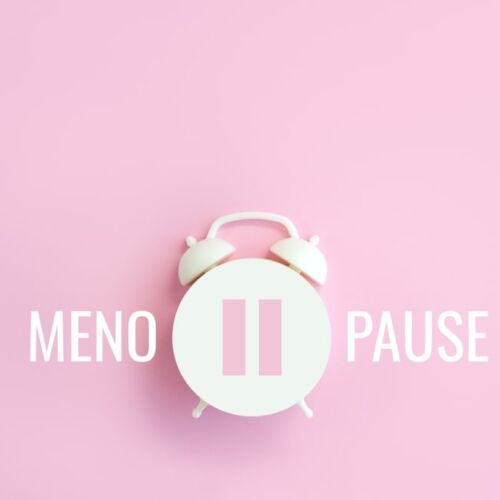Menopause and Nutrition: Essential Calcium, Vitamin D, and Phytoestrogens
by Mindy Lawnicki, RD

As women enter menopause, changes in our bodies can feel overwhelming—whether it’s shifts in mood, energy, or weight. One of the most important aspects of managing menopause is maintaining bone health, and proper nutrition plays a key role in that. In this article, we’ll explore how calcium, vitamin D, and phytoestrogens can help support your body through this transition and ease common symptoms associated with menopause.
Calcium and Vitamin D for Menopause
Improving bone health during menopause is often overlooked. The importance of getting enough calcium and vitamin D with foods rich in calcium for menopausal women is paramount. When menopausal women lose bone mass it also reduces bone strength, increasing the risk of bone fractures. The earlier a woman goes through menopause the greater her propensity to lower bone density and higher fracture rate according to The Journal of The Menopause Society. The suggested daily calcium intake for postmenopausal women is 1000-1200 international units per day along with 800 IU of vitamin D. This can be achieved through both diet and nutritional supplementation, though nutrients through food are absorbed better. Some calcium rich foods are yogurt, milk, string cheese, cottage cheese and cheddar cheese. Non dairy sources also contribute to the mix, such as leafy greens, fortified orange juice, collard greens, cooked spinach, kale and broccoli are also good choices. (For more on Vitamin D, click this link from the National Institute of Health.) Vitamin D is especially important for people living in colder climates with less sun exposure, and is a necessary element for calcium absorption.
But WHY is it so important to have healthy bones, especially if you’re not an extreme athlete? The answer is as simple as it is complex. Bone fractures result in delayed healing, increased risk of trauma-related stroke, decreased mobility, increased occurrence of pneumonia or hospital acquired disease, and depression associated with lack of independence. Nutrition plays a crucial role in reducing these risks.
Phytoestrogens – What are they and will they help me?
Many going through menopause notice a drop in overall energy, but few know that simple diet changes can help alleviate some of the symptoms! Estrogen is a steroid hormone that naturally exists in all genders. While dropping significantly after menopause, estrogen levels change throughout our lives and are responsible for triggering puberty, reproduction, sex drive, and homeostasis (body stability) in general.
Phytoestrogens are non-steroidal plant compounds that mimic the activity and effects of estrogen. Phyto-” is a Greek root word meaning “plant.” Phytoestrogens, though plant-based, function much like animal estrogen in humans. When consuming phytoestrogens, our bodies may respond as if our own estrogen were present. Phytoestrogen are found in many foods and herbs: angelica, black cohosh, broccoli, carrots, chaste tree berry, coffee, dong qua, evening primrose, legumes (beans, peas, peanuts), licorice root, oranges, red clover, soy (tofu, tempeh, miso, soymilk) and tea. Unlike steroid estrogen replacement therapy, there have been absolutely no apparent harmful effects of phytoestrogens on breast, endometrial cancer or colorectal cancer. In fact, phytoestrogens might even be protective. What about those low days that make me feel like a moody teenager again? Another benefit of plant-based phytoestrogens is that low dose long term use can relieve symptomatic depression especially among postmenopausal women. Bring on the licorice!
How do I start getting the nutrients I need during menopause?
Calcium-rich foods (1000-1200 mg per day):
- 3.5 oz of yogurt, cheese, or fortified plant milks
- Leafy greens like kale or broccoli
- Plant-based sources: tofu, beans, almonds
Vitamin D sources (800 IU per day):
- 3.5 oz of wild-caught salmon or tuna
- Fortified dairy or plant milks
- Mushrooms, especially when exposed to UV light
Phytoestrogens:
- 1 serving of soy products (tofu, tempeh)
- A sprinkle of flaxseed
- Legumes, chickpeas, or beans
A 3.5 oz portion of wild-caught salmon with a serving of white or crimini mushrooms contains enough vitamin D for an entire day. Tuna is another great source of vitamin d, remembering that wild caught fish will always have higher nutrients.
Most breakfast juices, plant/animal milks and yogurts are fortified with about 300 mg calcium per serving, while cereals have varying levels of nutrient supplementation. Baked beans and tofu contain higher levels of calcium for those seeking plant-based sources. Three to five servings of any of the above is more than enough calcium (not to mention protein) for the day. A serving of soybeans, miso soup, or a sprinkle of flaxseed completes the suggested daily intake of phytoestrogens. If you’re not a fan of flax, have some stone fruit, or a serving of garlic, potatoes, nuts or peas.
If reading this alone doesn’t make you happy, try having some peanut butter and a cup of coffee each morning, or add broccoli and carrots to your weekday dinners. While we know that diet alone cannot prevent all menopause symptoms, we DO know that nutrition is the foundation for a healthy body and YOU have control over your nutritional building blocks. But you don’t have to do it by yourself. Although it looks different for everyone, anyone who menstruates goes through menopause. The important thing to remember (here and alwkays) is that you’re not alone. (Read Kerry’s menopause story.) If you have questions about nutrition in menopause (or other topics), contact me for personalized education and meal plans. Thrive on YOUR terms!
About the Author: Mindy Lawnicki, is a Registered Dietitian, based in Colorado, she runs Mindy’s Nutrition learn more about her and hers services at www.mindysnutrition.com.
Images: From Unsplash and Pexels
The Site is not intended to be a substitute for professional advice. Under no circumstances will we be liable for any loss or damage caused by your reliance on information obtained through the Site. You are responsible for evaluating the accuracy, completeness, or usefulness of any information, opinion, advice, or other content available through the Site. Please seek the advice of professionals, as appropriate, regarding the evaluation of any specific information, opinion, advice, or other content. Never disregard professional advice, including medical advice, or delay in seeking it because of something you have read on this Site.


